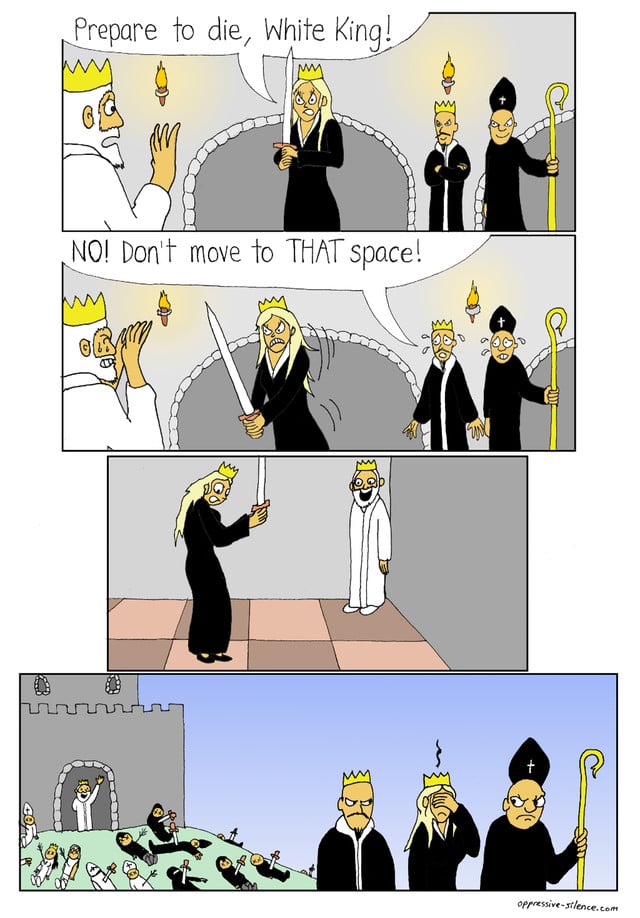this post was submitted on 04 Feb 2025
607 points (98.3% liked)
Comic Strips
15676 readers
1671 users here now
Comic Strips is a community for those who love comic stories.
The rules are simple:
- The post can be a single image, an image gallery, or a link to a specific comic hosted on another site (the author's website, for instance).
- The comic must be a complete story.
- If it is an external link, it must be to a specific story, not to the root of the site.
- You may post comics from others or your own.
- If you are posting a comic of your own, a maximum of one per week is allowed (I know, your comics are great, but this rule helps avoid spam).
- The comic can be in any language, but if it's not in English, OP must include an English translation in the post's 'body' field (note: you don't need to select a specific language when posting a comic).
- Politeness.
- Adult content is not allowed. This community aims to be fun for people of all ages.
Web of links
- [email protected]: "I use Arch btw"
- [email protected]: memes (you don't say!)
founded 2 years ago
MODERATORS
you are viewing a single comment's thread
view the rest of the comments
view the rest of the comments

Chess is an old game, and stalemate wasn't always considered a draw. At other times, creating a stalemate may have been considered a win or loss or partial win, or it may have been illegal altogether. But the modern draw makes sense if you keep in mind a few things. First, the victory condition is putting the opponent's king in checkmate (or accepting their concession). Second, exposing your king to an attack during your move is not just a blunder, it is actually an illegal move, to the point that you can't even do it as a pass through while castling. So stalemate is a unique outcome where neither player achieves their victory condition, yet the game cannot continue, since the player who must move next has no legal moves available.
In a practical sense, stalemate offers a means of giving a player in an inferior position a means of escaping a loss by punishing the dominant player for not being able to capitalize on their lead. It helps prevent someone from being able to brute force a win by making safe moves that do little to actually progress the game, like advancing all their pawns until the game is trivial. It's much less interesting to have the end game strategy be more about not losing one's lead rather than extending it.
So a win requires being more than slightly ahead of an opponent. It's worth pointing out that most high level chess games end in a draw where neither player has a sufficient lead to force a checkmate. There are other rules in modern chess that also force a draw to make sure the game is more about getting a win than just avoiding a loss. Otherwise there would be plenty of ways someone could stall forever to try to get their opponent to concede, and that's not very interesting.